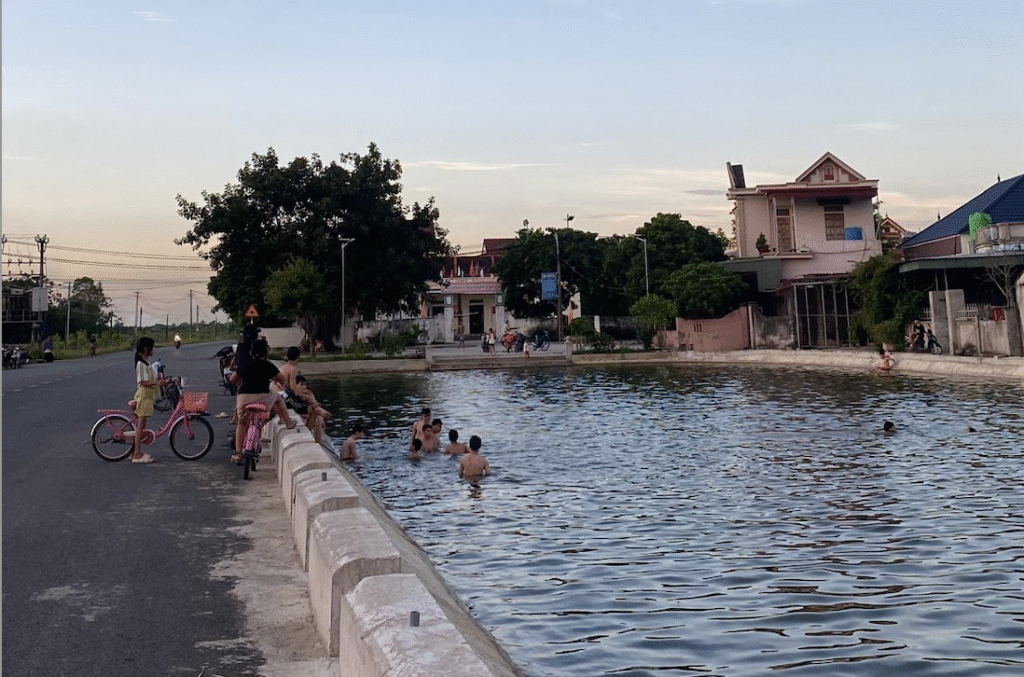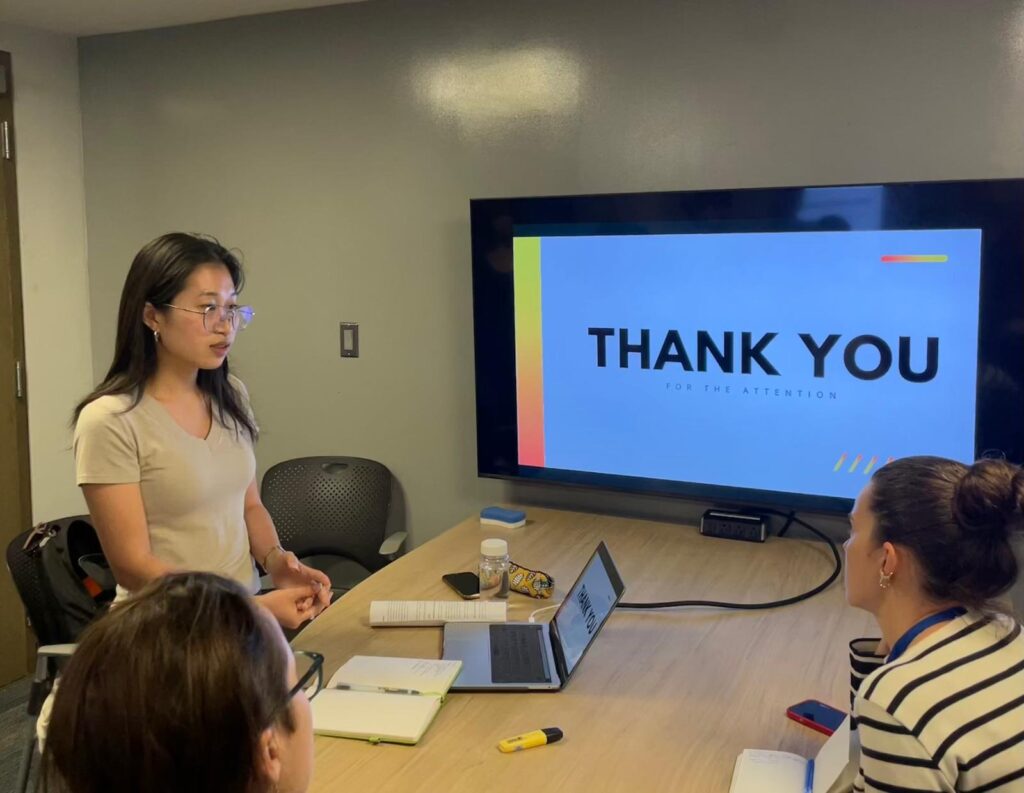Beyond the Money: The Human Side of Vietnam’s Labor Migration – Research Study by Vy Duong ’26
This past summer, senior Vy Duong traveled to Hau Loc, a rural district in Thanh Hoa province, Vietnam, to conduct research sponsored by the Center for Urban and Global Studies (CUGS). She was learning how increased migration abroad is changing family life and the local community. The project, “Beyond Remittances: How Labor Export Reshapes Families and Society in Hau Loc, Thanh Hoa, Vietnam,” was inspired by her own background. Both of her parents grew up in this area, where new houses line the streets as a testament to the money sent home from Japan, South Korea, and Taiwan.
“In my community, many young people go abroad for work and send remittances home,” she explained. “You can see it in the big, beautiful houses that rise among the fields. But what really interested me was how their absence changes life here – how it affects families and even how people see success.”
Her research looked at the social effects of this migration, not just the economic ones. Remittances make up about 4 percent of Vietnam’s GDP (data from 2023) and are often promoted by the Ministry of Labor, Invalids, and Social Affairs – as a way to develop the country. However, she wanted to see what happens beyond the money. Through interviews and fieldwork, she explored how long absences and contract work abroad (mostly in manufacturing and caregiving jobs) change family life and local values.

“I found that social norms are changing,” she said. “Young people now prioritize earning money and building wealth rather than building families. Their relatives also have mixed feelings: some are proud of their children working abroad, but others quietly wish they would stay home.”
Doing fieldwork in her home country was not always easy. Some people were unsure about discussing migration or participating in what they thought was formal research. To gain their trust, she spoke to them as a neighbor, rather than as a researcher. “I stopped saying ‘interview’ and just said I had a school project,” she recalled with a laugh. “Sometimes I relied on personal connections to find common ground. That helped participants open up.”
Among her most memorable encounters was a father whose son had just left to work in Japan. “He spoke so passionately that I barely had to ask questions,” she said. “He told me he wasn’t really in favor of labor export but supported his son anyway, because it’s what all his friends were doing. It showed me how complex and emotional these decisions are.”

Looking back on her findings, she questions whether labor export is a good way to develop the country. “Most remittances are used for non-productive purposes, like building houses, rather than long-term investment,” she explained. “So I tend to agree with the more pessimistic school of thought. It’s not necessarily sustainable development.”
Looking ahead, she hopes to expand her research beyond her home district, studying economic and psychological dimensions of remittances on a national scale. “This issue goes far beyond one community,” she said. “It’s about how Vietnam, as a country, chooses to grow – and at what social cost.”

